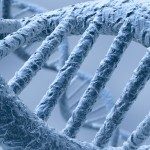Link to Pubmed [PMID] – 22615242
Infect. Immun. 2012 Aug;80(8):2655-66
Uropathogenic Escherichia coli (UPEC) strains are a leading cause of infections in humans, but the mechanisms governing host colonization by this bacterium remain poorly understood. Previous studies have identified numerous gene clusters encoding proteins involved in sugar transport, in pathogen-specific islands. We investigated the role in fitness and virulence of the vpe operon encoding an EII complex of the phosphotransferase (PTS) system, which is found more frequently in human strains from infected urine and blood (45%) than in E. coli isolated from healthy humans (15%). We studied the role of this locus in vivo, using the UPEC E. coli strain AL511, mutants, and complemented derivatives in two experimental mouse models of infection. Mutant strains displayed attenuated virulence in a mouse model of sepsis. A role in kidney colonization was also demonstrated by coinfection experiments in a mouse model of pyelonephritis. Electron microscopy examinations showed that the vpeBC mutant produced much smaller amounts of a capsule-like surface material than the wild type, particularly when growing in human urine. Complementation of the vpeBC mutation led to an increase in the amount of exopolysaccharide, resistance to serum killing, and virulence. It was therefore clear that the loss of vpe genes was responsible for all the observed phenotypes. We also demonstrated the involvement of the vpe locus in gut colonization in the streptomycin-treated mouse model of intestinal colonization. These findings confirm that carbohydrate transport and metabolism underlie the ability of UPEC strains to colonize the host intestine and to infect various host sites.


